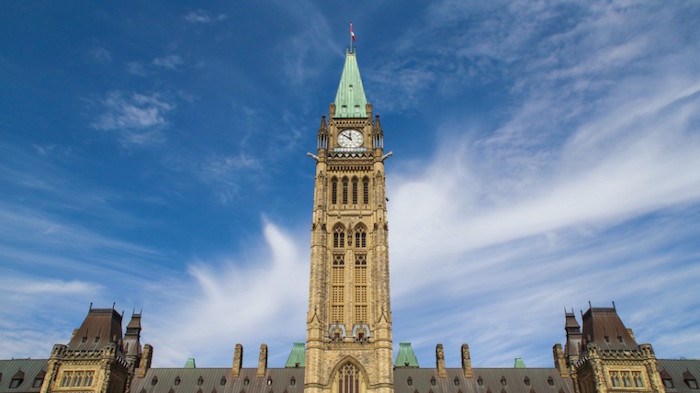NEWS RELEASE
ONTARIO DEPARTMENT OF FINANCE CANADA
***********************
The COVID-19 pandemic is the most serious public health crisis Canada has ever faced. Overcoming the challenges created by the pandemic requires the work and resolve of every order of government, every community, and every Canadian.
Today, the honourable Mona Fortier, Minister of Middle-Class Prosperity and Associate Minister of Finance, took part in a virtual town hall with the Newmarket Chamber of Commerce. The Minister was joined at the town hall by Tony Van Bynen, Member of Parliament for Newmarket-Aurora.
During the town hall, the Minister highlighted the work done to date through Canada’s COVID-19 Economic Response Plan to support businesses and individuals and shared the Government’s plan for economic recovery as outlined in the recent Speech from the Throne. The Government’s approach rests on four pillars: to secure public health and fight the pandemic; support jobs and businesses; build the foundations for a better recovery and safeguard Canada’s values while doing so.
To further these priorities, the Government intends to take additional steps to bridge vulnerable Canadians to the other side of the pandemic and build back better that include:
- Making the largest investment in Canadian history into training for workers;
- Enhancing the First-Time Home Buyer Incentive to help families afford a home;
- Making a significant, long-term, sustained investment to create a Canada-wide early learning and childcare system;
- Extending the Canada Emergency Wage Subsidy through to summer 2021 to help businesses and other employers keep their workers;
- Scaling up the Youth Employment and Skills Strategy, to provide more paid work experiences for young Canadians;
- Expanding the Canada Emergency Business Account (CEBA) to help businesses keep their doors open;
- Proposing the new Canada Emergency Rent Subsidy, which would provide simple and easy-to-access rent and mortgage support until June 2021 for qualifying organizations.
- Introducing further support for industries that have been the hardest hit, including travel and tourism, hospitality, and cultural industries like the performing arts.
The meeting is the third in a series of town halls that the Minister will be participating in to highlight the continued work of the government to address the pandemic and build back better.
Quotes
“Our first priority is addressing this pandemic and ensuring Canadians are healthy and safe. In the long-term, as we look to recovery, we are determined to build back better. We will focus on targeted investments to strengthen the middle class, support those working hard to join it, generate clean growth and create jobs. We will take bold action on health, the economy, equality, and the environment to build a more resilient country for future generations.”
- The Honourable Mona Fortier, Minister of Middle Class Prosperity and Associate Minister of Finance
Quick facts
-
Canada’s COVID-19 Economic Response Plan offers essential support for individuals and businesses to weather the worst of the economic storm, including:
-
The Canada Recovery Benefit (CRB) is part of the Government’s plan to better support Canadians through the next phase of the economic recovery. This new temporary benefit will provide income support of $500 per week for up to 26 weeks to employed and self-employed individuals who have stopped working or had their income reduced by at least 50% due to COVID-19 and who are not entitled to Employment Insurance (EI) benefits. For those who are eligible for EI, temporary changes will make benefits more flexible and easier to access. These important temporary measures have replaced the Canada Emergency Response Benefit (CERB), which has helped approximately 8.9 million people pay their bills and put food on the table over the spring and summer.
-
The Canada Emergency Wage Subsidy protects jobs by helping employers keep workers on the payroll and encouraging them to re-hire those previously laid off, and has supported over 3.7 million Canadian employees, with more than $41 billion paid out in wage subsidies. The Government recently announced that it plans to introduce legislation to extend the wage subsidy until June 2021.
-
The Canada Emergency Business Account (CEBA), providing interest-free loans of up to $40,000 to small businesses and not-for-profits, 25 per cent of which is forgivable, helping cover their unavoidable costs at a time when their revenues have been temporarily reduced, has assisted close to 770,000 small businesses, representing over $30 billion in financing. The Government announced that it would be expanding CEBA to allow access to eligible applicants to an interest-free loan of up to $20,000, in addition to the original CEBA loan of $40,000. Half of this additional financing would be forgivable if repaid by December 31, 2022. Additionally, the application deadline for CEBA is being extended to December 31, 2020.
-
The new Canada Emergency Rent Subsidy, which would provide simple and easy-to-access rent and mortgage support until June 2021 for qualifying organizations affected by COVID-19. The rent subsidy would be provided directly to tenants, while also providing support to property owners. The new rent subsidy would support businesses, charities, and non-profits that have suffered a revenue drop, by subsidizing a percentage of their expenses, on a sliding scale, up to a maximum of 65 per cent of eligible expenses until December 19, 2020. Organizations would be able to make claims retroactively for the period that began September 27 and ends October 24, 2020.
-
**********************



